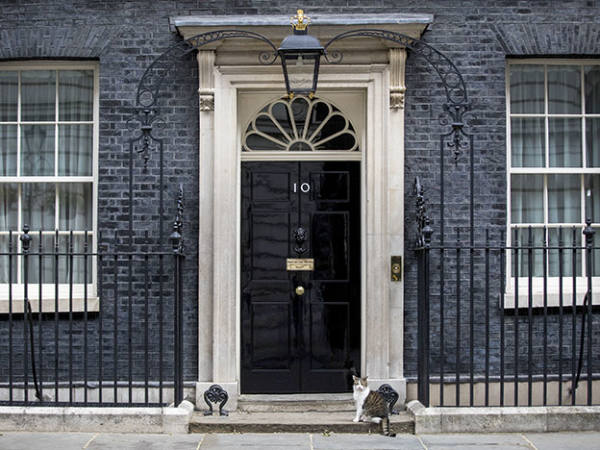- Commercial landlords have suffered substantial shortfalls in rent following the latest lockdown
- There is uncertainty over when some legal enforcement actions will once again become available
- Further pressure on debt covenants may hold back dividend payments
By the time the moratorium on evicting tenants for not paying rent is due to expire at the end of March, some tenants will not have paid rent for more than a year. Commercial landlords are nursing heavy losses in income, placing increased strain on debt covenants and casting further doubt on a recovery in dividend payments to investors.
Retail and leisure landlords suffered the highest shortfall in rent due for the first quarter of this year, according to data from Remit Consulting, collecting just 56 and 40 per cent of the respective amounts owed three weeks after the due date. With an increasing number of businesses coming under significant financial strain, a rise in administrations and those pursuing company voluntary arrangements is probable through the remainder of this year. There were around 630,000 businesses in significant financial distress at the end of December, according to solvency practitioner Begbies Traynor, a 13 per cent rise on the prior quarter.
Demand for retail rental property continues to wane, with a net -27 per cent of respondents to the latest Royal Institution of Chartered Surveyors commercial property survey reporting a decline in interest. A negative balance implies more respondents reported a reduction in demand than those who did not.
| Cross-sector rent collection rates | |||||
| Retail | Offices | Leisure | Industrial | Overall average | |
| Dec due date (%) | 45.8 | 71.2 | 28.8 | 62.1 | 52.6 |
| Day 7 (%) | 50.5 | 79 | 33.3 | 72.4 | 59.5 |
| Day 21 (%) | 55.5 | 87.2 | 39.9 | 82.6 | 67.2 |
| Source: Remit Consulting | |||||
It is unlikely that landlords will get back all of the amounts owed. That is a pill that many landlords have already been forced to swallow, agreeing a plethora of concessions with tenants in the aftermath of the pandemic outbreak.
Recognising the strain of trading under government restrictions, some landlords have waived or reduced the rent for the period of lockdown, says Andrew Todd, partner at Eversheds-Sutherland’s real estate dispute resolution team. In exchange, tenants have agreed to either give up a lease break, extend the duration of lease or agree to increase the deposit set against rent. “From a landlord perspective, you have got to be realistic,” says Mr Todd.
However, some landlords are concerned that if they offer rent concessions now and the tenant goes on to launch a CVA, any new lease will be based upon the concession level rather than the original rents agreed prior to the pandemic, according to Ashurst partner Alison Hardy. “People are worried that they’ll get chopped from the reduced amount rather than the full amount,” she says. Some landlords have worked to put in place agreements stating that new rents will be calculated according to pre-concession levels, she adds.
The temporary ban on a number of enforcement actions open to landlords to recover Covid-related debts, including evicting tenants over the non-payment of rent and taking control of goods to recover rent arrears, is due to come to an end on 31 March. However, both Ms Hardy and Mr Todd believe there is the possibility for that deadline to be extended.
The government could decide to allow some enforcement actions, while maintaining the moratorium on others, says Ms Hardy. “They could say landlords could enforce for rent arrears using [Commercial Rent Arrears Recovery], but you can’t forfeit and you can’t make them insolvent,” she says.
Ms Hardy says she would not be surprised if the government kept “their foot on the brake” over landlords’ ability to make tenants insolvent as insolvency practitioners and the courts may not be able to cope with a sudden surge in claims.
Yet even if lease forfeiture is allowed to resume, landlords may think twice about taking advantage of this power as they may also face the cost of business rates. Companies in the retail, hospitality and leisure sectors in England were granted a business rates holiday until the end of the 2021 tax year, but that only applies to occupied properties and those empty for up to three months. For retail landlords, finding a new tenant could prove more difficult in a sector that was already challenged by the surge in online shopping and an oversupply of space.
In the meantime, some landlords have filed debt claims over unpaid rent, one of the few remedies available during the pandemic. These have been used as “a mechanism for bringing some of the retailers to the table to discuss [terms]”, says Mr Todd.
There are landlords that believe some larger tenants can afford to pay but have taken advantage of the current moratorium to withhold rent.
Leeds-headquartered commercial landlord Town Centre Securities (TOWN) last year issued a debt claim against Boots through the county court over unpaid rent from Boxing Day 2019 until December last year. New lease terms were agreed before the arrival of the court date.
Chief executive of the group, Edward Ziff, says he questions “the sense of Boots being prepared to damage their reputation in exchange for a discount on the rent”, particularly as the high street chemist has remained open throughout the pandemic.
A spokesperson for Boots said that while the retailer kept its doors open to provide pharmacy services, retail footfall across the estate had remained significantly reduced and trading had been severely impacted. It is now paying rent to the vast majority of landlords, the spokesperson said, adding: “Where discussions are ongoing, we have paused some payments as we look to agree fair and equitable solutions to allow us to continue to serve our local communities and provide vital pharmacy services.”
It seems highly likely that those leasing space to retail and leisure occupiers, who have suffered the largest curbs to trading through the pandemic, will bear the brunt of mounting rent arrears later this year. The knock-on impact of lost income on interest cover covenants could not only keep the recovery in dividend payments in check, but also lead to a further bout of landlords turning to the market for support via further capital raising.
| Forecast EPS growth/decline (YoY) (%) | DPS (last reported yr) (p) | DPS (unreported yr (p) | |
| AEW UK REIT PLC | -13.9 | 8.0 | 8.0 |
| British Land Company PLC | -32.6 | 16.0 | 17.5 |
| Capital & Counties PLC | - | 1.5 | 0.4 |
| Capital & Regional plc | -78.9 | 21.0 | 2.5 |
| Great Portland Estates plc | -24.4 | 12.6 | 12.5 |
| Hammerson plc | -83.0 | 11.8 | 0.1 |
| Land Securities Group PLC | -37.4 | 23.2 | 24.7 |
| LondonMetric Property Plc | 0.4 | 8.3 | 8.6 |
| LXI REIT PLC | 4.8 | 5.8 | 5.6 |
| McKay Securities PLC | -12.2 | 7.2 | 8.2 |
| NewRiver REIT plc | -61.7 | 16.2 | 4.9 |
| Picton Property Income Limited | -5.4 | 3.3 | 2.9 |
| RDI REIT PLC | -29.1 | 5.0 | 4.8 |
| Real Estate Investors plc | -11.7 | 3.8 | 3.3 |
| Regional REIT Ltd. | -17.5 | 8.2 | 6.4 |
| Secure Income REIT PLC | -74.4 | 16.8 | 15.7 |
| SEGRO plc | 1.1 | 20.7 | 21.7 |
| Shaftesbury PLC | -17.5 | 0.0 | 4.3 |
| Supermarket Income REIT Plc | 5.8 | 5.8 | 5.9 |
| Town Centre Securities PLC | -38.1 | 5.0 | 3.0 |
| Triple Point Social Housing REIT PLC | 31.7 | 5.1 | 5.2 |
| Tritax Big Box REIT Plc | 0.2 | 6.9 | 6.3 |
| Urban Logistics REIT plc | -5.0 | 3.7 | 6.8 |
| Warehouse REIT PLC | -20.5 | 6.2 | 6.2 |
| Workspace Group PLC | -54.1 | 36.2 | 16.9 |
| Source: FactSet |












